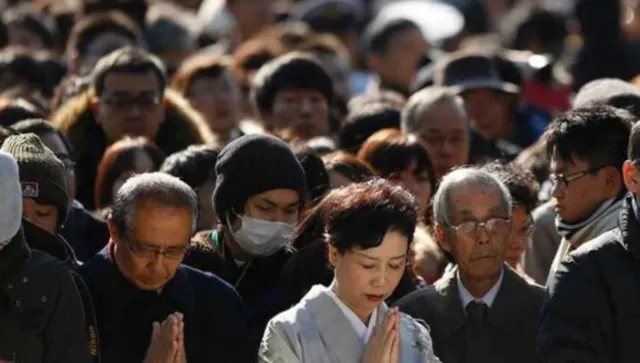New Marker of Japan Ageing Society
The percentage of Japan population over 80 years old has surpassed 10%, putting the country in grave demographic peril. Kyodo News reports that the country with the oldest population, is experiencing a dramatic increase in its elderly population.
There are now 124.6 million people, and 10.1% are 80 or older, a rise of 270,000 from only last year. Prior to Respect for the Aged Day on the third Monday of September, the Japanese Ministry of Internal Affairs and Communications issued the following statistics.
Another first: 36.23 million people (or 29.1% of the total population) are 65 or older. Statistics released on Friday show that has the oldest population in the world.
With 24.5% and 23.6% of their populations over 65, Italy and Finland come in second and third, respectively.
Women make up over half (56.6%) of elderly population (20.51 million). 15.72 million men reach old age. This difference can be attributed to the higher lifespan of Japanese women.
Age 75 and up now accounts for 16.1% of the total population, or 20.05 million people.
Employment of Older People Continues to Grow in Japan
The number of working-age Japanese rose by 25.2% to 9.12 million in 2022, a rise of 19 years. The percentage of retirees in the labour market has hit a new high of 13.6%.
The Japanese government is making an effort to reverse the country’s declining birthrate to save the economy. In addition, it meets the needs of the ageing population, many of whom are now unable to manage without one-on-one assistance.
Several sectors of the Japanese economy are threatened by the country’s declining population.
Economic Consequences of an Ageing Population
Japan’s economy is feeling the effects of a number of demographic issues. The ageing of the country’s population poses significant challenges.
Several sectors in Japan are experiencing worker shortages as a result of the country’s ageing population. The need for foreign workers in key roles has increased as has the use of automation.
Ageing populations have smaller working-age populations, which slows economic expansion. The GDP and productivity might take a hit if fewer people are of working age.
An ageing population puts a pressure on public resources dedicated to pensions and healthcare. This might put a burden on government funding and lead to tax increases or changes in benefits.
They have to improve its social support services, especially its long-term care, in order to better serve its ageing population. This requires a lot of money for facilities and employees.
Cultural changes: Japan’s ageing population necessitates a rethinking of traditional family structures. As the population ages, there will be a greater need for caregiving and intergenerational assistance.
Government Responses to the Problem of Overseas Workers
There has been action on the part of the Japanese government to deal with the consequences of an ageing population. Activities comprise:
In order to alleviate skill shortages, it is important to promote senior employment.
Hiring people from other countries to help with healthcare and agricultural labour shortages.
Robotics refers to the study and use of robots and other forms of automation for use in domestic and industrial settings.
More services and facilities for the elderly are part of an effort to expand long-term care.
Increasing the retirement age would mean coercing people to continue working past the traditional age of retirement.
Conclusion
Finally, rising ageing and depopulation in Japan create a number of challenges and economic implications. As the country ages, it will need to handle issues including a lack of workers, slow economic development, rising healthcare and retirement costs, and inadequate social safety nets. And then, the Japanese government is attempting to solve these problems and ensure the country’s long-term sustainability through a variety of means, one of which is the recruitment of foreign workers.
